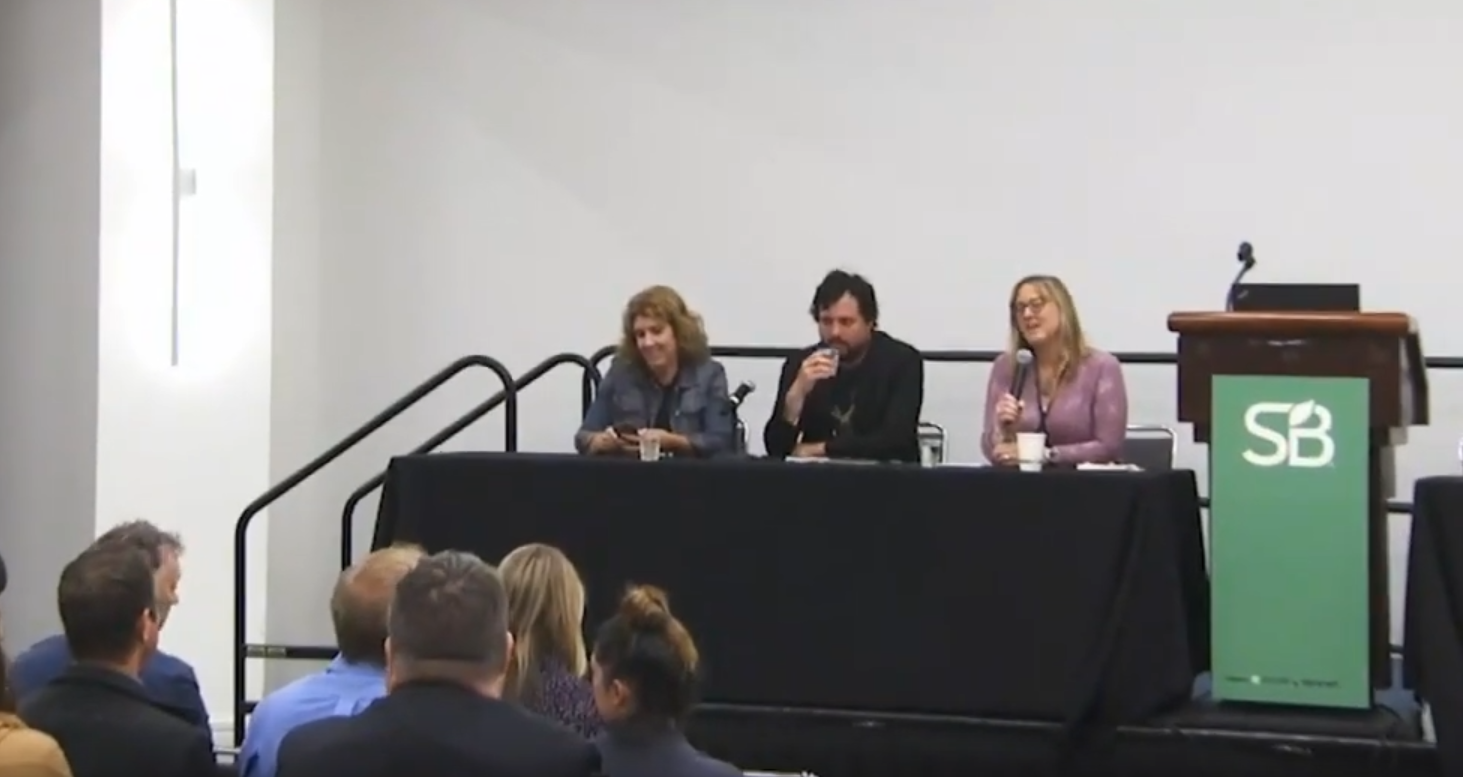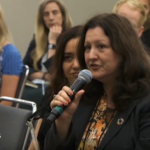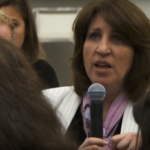
After a documentary screening at the Sustainable Brands 2019 conference in Detroit, Great Lakes Now hosted an audience discussion with the MLive Media Group reporters who have been leading the coverage of the PFAS issue in Michigan.

Great Lakes Now hosted an audience discussion with the MLive Media Group
“PFAS” is short for per- or polyfluoroalkyl substances – a family of chemicals used to make common household products and waterproof clothing. They’re being found in an increasing number of drinking water sources, and research is only beginning to determine the health effects and what treatments there might be.
The award-winning work from MLive is HERE.
An edited version of the question-and-answer sessions is below.
If you are interested in hosting a screening of “The Forever Chemicals” in your community or classroom, please contact Great Lakes Now Program Director Sandra Svoboda: ssvoboda at dptv.org
 Audience Question 1: Are we likely to see the kind of litigation response to PFAS that we’ve seen to (the weed killer) glyphosate?
Audience Question 1: Are we likely to see the kind of litigation response to PFAS that we’ve seen to (the weed killer) glyphosate?
Garret Ellison: I have not followed the glyphosate issue as closely as I’ve followed this. What I can say is the EPA is not treating PFAS in the same way they’re treating glyphosate. The issues around glyphosate seem to be, they’re pushing back against the EPA’s determination of no harm. With PFAS the EPA is acknowledging that his is harmful stuff, that this is a problem.
Find PBS NewsHour’s reporting about glyphosate here: “What you need to know about a popular weed killer’s alleged link to cancer.”
 Audience Question 2: (A woman described chemical dumping in the suburban neighborhood where she grew up.) What can you do in Michigan with this happening? How do you fight that as residents?
Audience Question 2: (A woman described chemical dumping in the suburban neighborhood where she grew up.) What can you do in Michigan with this happening? How do you fight that as residents?
Paula Gardner: You had the recognition sooner than I did. I was a happy normal person until last year thinking these chemicals sites got cleaned up. Then you realize they actually live on until infinity, and it’s a problem. It’s a problem for people.
 Audience Question 3: In the movie you showed there is uncertainty around the maximum limit of PFAS. What about other countries?
Audience Question 3: In the movie you showed there is uncertainty around the maximum limit of PFAS. What about other countries?
Garret Ellison: The European Food Safety Authority did recently release some findings indicating that acceptable levels in drinking water ought to be as close to zero as possible because we’re getting so much exposure through food as well and that any additional exposure on top of what we’re getting through food or things like pizza boxes, Stainmaster carpets and places where we bump up against this stuff,w e should keep exposure through drinking water to an absolute minimum.
Paula Gardner: It is an international issue, so places like Australia and Europe, they’ve come up with a lot of research that has been done there and there are people who say they’re far ahead of us or they are at least purusing a far more protective stance. …
Audience Question 4: Why do you think legislation is not doing more?
Garret Ellison: There’s various pieces of legislation at the state level.
Click the description to see Michigan bills related to PFAS that would:
–Require the state to provide an interactive digital map of the results of well-water testing
–Require reporting when fire-fighting foam containing PFAS is used
The Part 201 law is the state’s Clean Up law, and that’s been in place for quite a while, since the 90s. A lot of states are kind of pointing to the federal government and saying, “This is a national problem and international problem but we are going to do what we can to address this if we don’t feel like you the EPA or you the federal government are moving quickly enough or setting standards that are protective enough.” There’s a pretty sizable number of bills that re trying to address the PFAS problem in Congress right now, and they’re getting some pretty good bipartisan support.
Click the description to see congressional bills in the current session related to PFAS that would:
–Require the Environmental Protection Agency to publish a maximum contaminant level of PFAS in drinking water (House Resolution 2377)
– Require the Environmental Protection Agency to declare PFAS as a hazardous substance (House Resolution 535)
–Require the U.S. Geological Survey to do a national survey of PFAS contamination (Senate Bill 950)
Paula Gardner: And there will be news from Michigan, in the next couple of months we should hear where the governor and her team plan to take the maximum contaminant level for the state.
Click HERE to see some of what Gov. Gretchen Whitmer said during her campaign about PFAS during an interview with the Detroit Journalism Cooperative.

